Related Research Articles

Olivet Nazarene University (ONU) is a private Nazarene university in Bourbonnais, Illinois. Named for its founding location, Olivet, Illinois, ONU was originally established as a grammar school in east-central Illinois in 1907. In the late 1930s, it moved to the campus in Bourbonnais. The university is affiliated with the Church of the Nazarene and is the annual site of the church's Regional Celebrate Life youth gathering for the Central USA Region.

Wirt Clinton Rowland was an American architect best known for his work in Detroit, Michigan.

The Bertrand Russell Case, known officially as Kay v. Board of Higher Education, was a case concerning the appointment of Bertrand Russell as Professor of Philosophy of the College of the City of New York, as well as a collection of articles on the aforementioned case, edited by John Dewey and Horace M. Kallen.
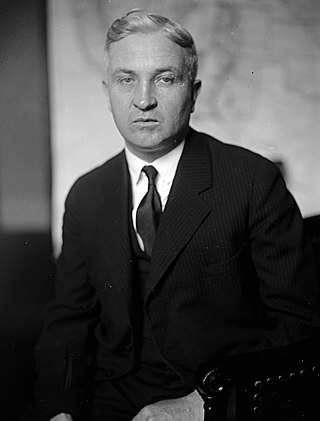
Robert Henry Clancy was a politician from the U.S. state of Michigan.
John Frank Corvino is an American philosopher. He is a professor of philosophy and the dean of the Honors College at Wayne State University in Detroit, Michigan and the author of several books, with a focus on the morality of homosexuality. Corvino is sometimes referred to as "The Gay Moralist", a sobriquet he assumed while writing a column of the same name.
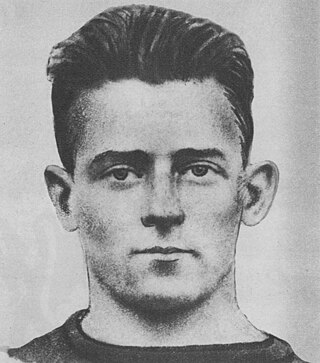
Charles Emile "Gus" Dorais was an American football player, coach, and athletics administrator.

George Gregory Sadowski was an American lawyer and politician who served three terms in the United States House of Representatives from the U.S. state of Michigan from 1933 to 1939.
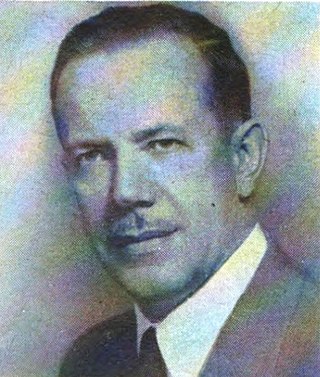
Thaddeus Michael Machrowicz was a United States representative from Michigan and later was a United States district judge of the United States District Court for the Eastern District of Michigan.
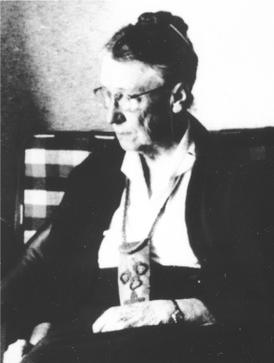
Grace Mead de Laguna was an American philosopher who taught at Bryn Mawr College in Pennsylvania.
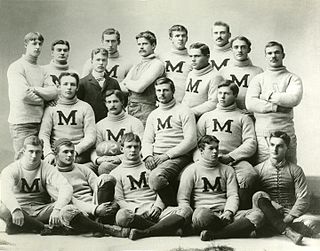
The 1891 Michigan Wolverines football team was an American football team that represented the University of Michigan in the 1891 college football season. The team compiled a 4–5 record and outscored opponents by a total of 168 to 124.
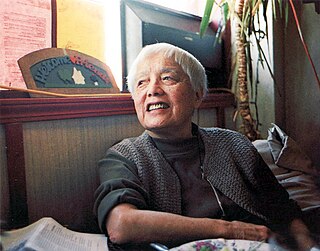
Grace Lee Boggs was an American author, social activist, philosopher, and feminist. She is known for her years of political collaboration with C. L. R. James and Raya Dunayevskaya in the 1940s and 1950s. In the 1960s, she and James Boggs, her husband of some forty years, took their own political direction. By 1998, she had written four books, including an autobiography. In 2011, still active at the age of 95, she wrote a fifth book, The Next American Revolution: Sustainable Activism for the Twenty-First Century, with Scott Kurashige and published by the University of California Press. She is regarded as a key figure in the Asian American, Black Power, and Civil Rights movements.

Otto Christ Carpell was an American college football player for the University of Michigan. He played halfback for the Michigan Wolverines football team from 1909 to 1912. He became an aviation combat pilot during World War I and was one of four Michigan football players to be killed in the war.
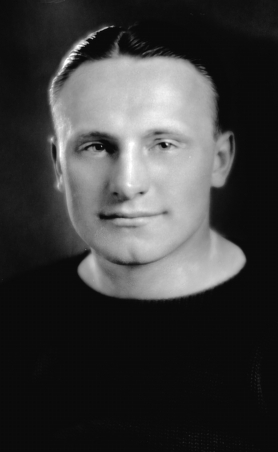
Joseph E. "Truck" Truskowski was an American football, basketball and baseball player and coach. He played college football, basketball and baseball at the University of Michigan. He later served as the head baseball coach at Iowa State from 1936 to 1937 and at Wayne State in 1941 and from 1946 to 1959.

Herb Boyd is an American journalist, teacher, author, and activist. His articles appear regularly in the New York Amsterdam News. He teaches black studies at the City College of New York and the College of New Rochelle.
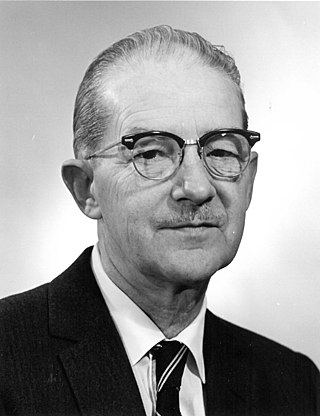
Frederick Clever Bald was an American historian who was an authority on the early history of Michigan and served as director of the Bentley Historical Library at the University of Michigan. Following service in France with an ambulance unit during World War I, Bald completed his college education and embarked on a teaching career in Detroit, Michigan before returning to graduate school to study the history of the Northwest Territory. The subject of his dissertation was Detroit during its first decade under American occupation, subsequently published as Detroit's First American Decade 1796 to 1805. Bald also authored the book Michigan in Four Centuries as well as numerous articles. During World War II, Bald was appointed University War Historian at the University of Michigan, beginning his affiliation with the Michigan Historical Collections, forerunner of the Bentley Historical Library. He served as director of the Michigan Historical Collections from 1960 to 1966.
Davis Aerospace Technical High School at Golightly Career and Tech Center is a senior high school in Detroit, Michigan, in the Golightly Career and Tech Center. A part of Detroit Public Schools, it has an aviation curriculum certified by the Federal Aviation Administration (FAA) in addition to its standard academic program. The school, named after Benjamin O. Davis, Jr., is one of two Michigan high schools, and one of a few American high schools, to offer such a program.
Neal Vernon Loving was an American racing pilot. He is the first African-American and the first double amputee to be licensed as a racing pilot. He was also known for his work as an inventor and aeronautical engineer.
Billy C. Hawkins is an American academic administrator, and teacher. He served as a past president of Talladega College. Hawkins also serves as a board member of the United Negro College Fund and is a past member of the White House Board of Advisors on historically black colleges and universities.
Donald Frank White was a Canadian-born American architect and engineer, of African descent. He was the first Black architect registered in the states of Alabama and Michigan. He had been a partner of the firm of White & Griffin Architecture–Engineering Associates; and he later worked in the firms of Giffels & Vallet, and Nathan Johnson & Associates. He also worked in the 1950s for the United States government in designing structures in Liberia. White was the first Black graduate from the School of Architecture at University of Michigan, both in the undergraduate and graduate program. He was the first Black member of the Detroit chapter of the American Institute of Architects (AIA), and an early member of the national chapter.
References
- 1 2 "Michigan's Story: The History of Race at U-M | Student Stories | Online Exhibits | MLibrary". www.lib.umich.edu. Retrieved 2018-01-01.
- 1 2 3 4 5 6 "Dr. Cornelius Golightly (1917-1976): The Life of an Academic and Public Intellectual | The Black Past: Remembered and Reclaimed". www.blackpast.org. 25 March 2014. Retrieved 2018-01-01.
- ↑ "Golightly Career and Technical Center". The Michigan Chronicle. 2009-09-30. Retrieved 2018-01-01.